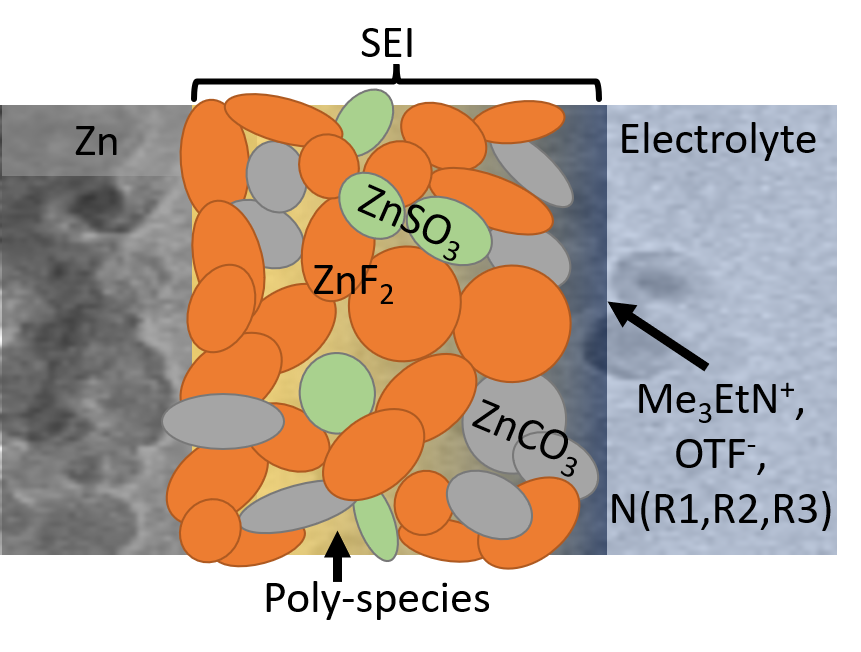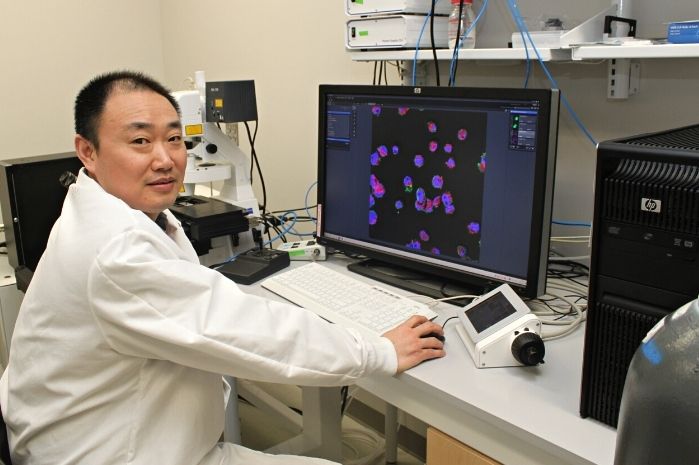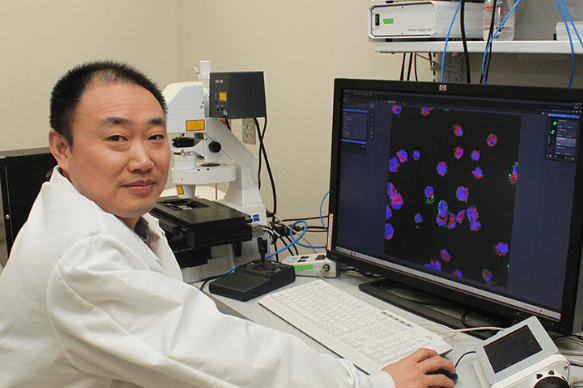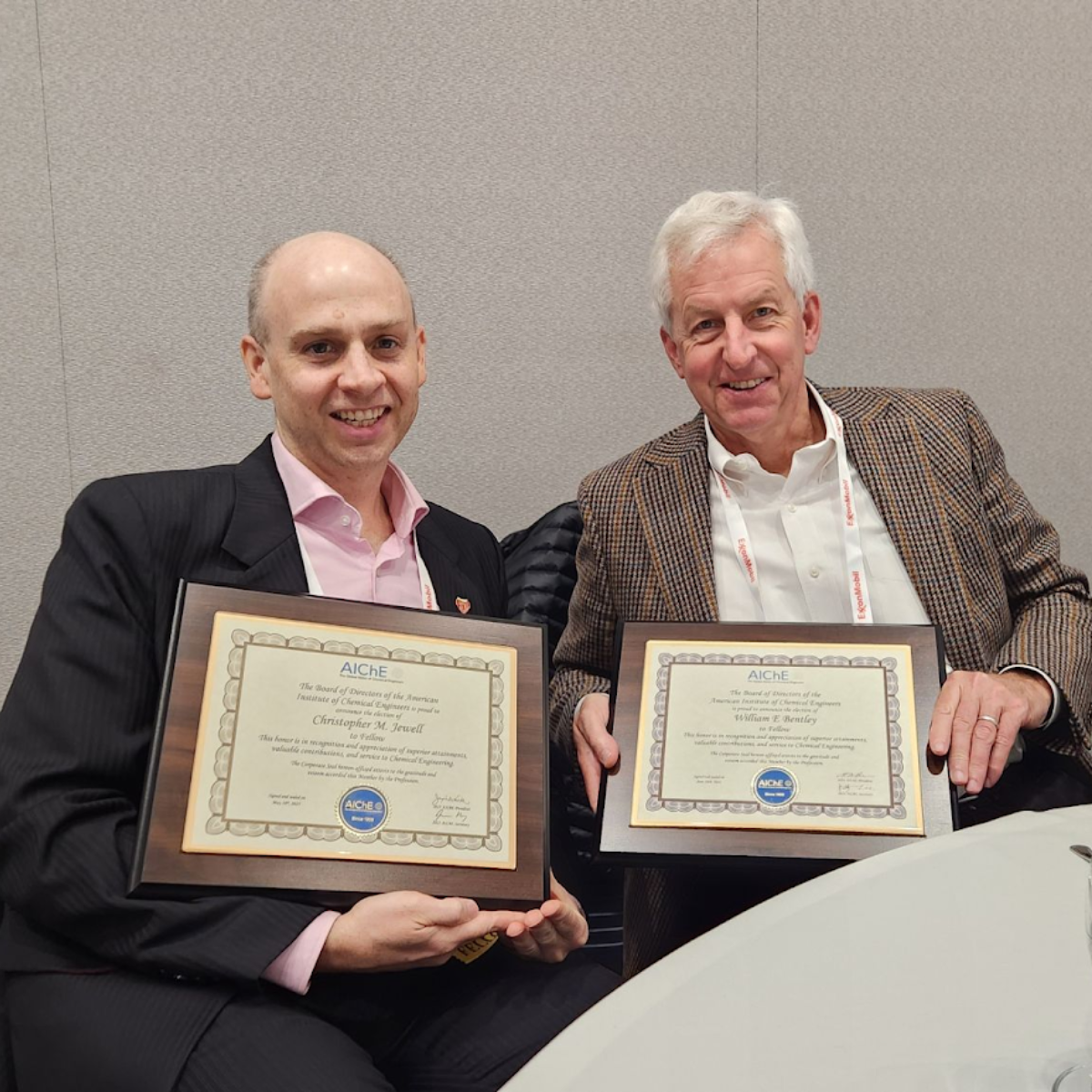News Story
ChBE Research Team Receives $600K NSF Grant
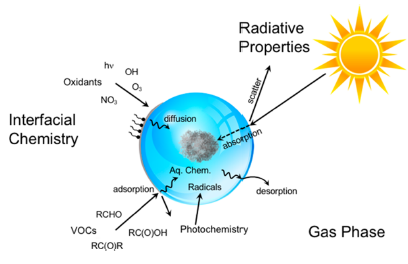
Image provided by T. Woehl.
Akua Asa-Awuku and Taylor Woehl, both chemical engineering professors at the University of Maryland (UMD), have received a $600K grant from the National Science Foundation (NSF) in support of their project, Nanoscale Visualization and Understanding of Atmospheric Aerosol Dissolution Kinetics in Aqueous Organic Droplets. The funding, awarded by the Environmental Chemical Sciences Program of the NSF Division of Chemistry, kicks in on July 1 and is good for three years.
The processes by which aerosols take up water and form droplets are not fully understood. The current assumption is that partially soluble particles must first dissolve and enter the water phase before absorbing more water, however, this phenomenon has not been directly observed.
"We're particularly interested in the ability of these aerosols to affect cloud formation, which is important for the Earth's climate," said Asa-Awuku. "Aerosols are complex mixtures of water-soluble and insoluble compounds. Chemists want to determine the ability of aerosols to act as effective cloud condensation nuclei (CCN), but chemical and physical diversity results in complicated interactions between aerosols and clouds - computer simulations often assume that water-insoluble organic aerosols cannot act as CCN."
This new project directly visualizes the processes that occur during CCN activation of water-insoluble aerosols on the nanometer scale. From these observations, the team will derive a new mechanistic understanding of CCN behavior of this class of aerosols. Direct imaging of water condensation on aerosol, and dissolution of aerosol particles, using high resolution electron microscopy will shine light on the initial stages of how a cloud forms that will better inform predictive models for cloud formation.
"Precipitation and weather patterns are influenced by clouds, so accurate prediction of cloud formation will lead to better weather predictions," said Woehl. "Such knowledge is critical to a number of industries that base their decisions on weather predictions, including agriculture, maritime and energy, in addition to knowing whether or not you should bring your umbrella with you in the morning!"
Published June 25, 2020
